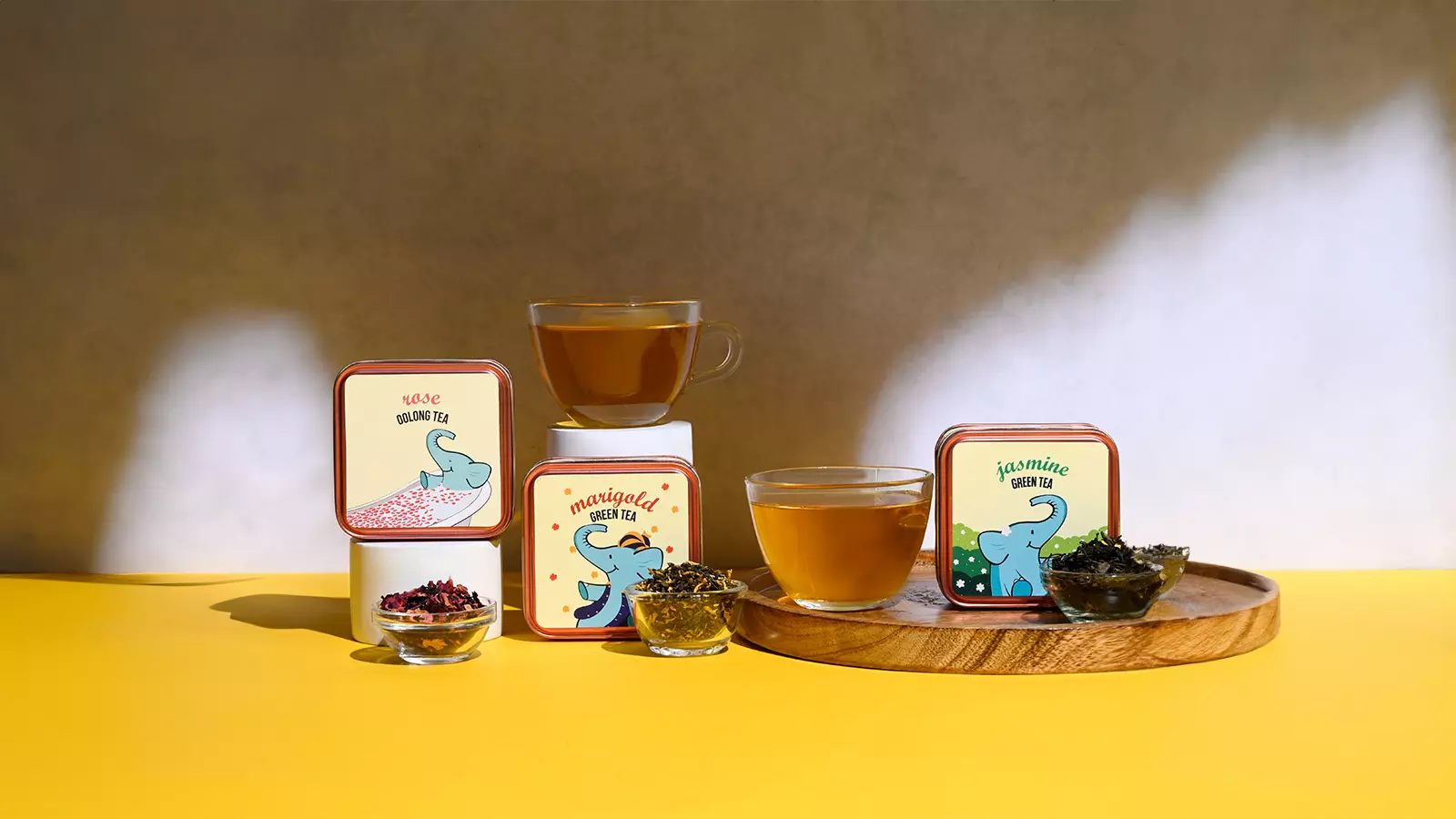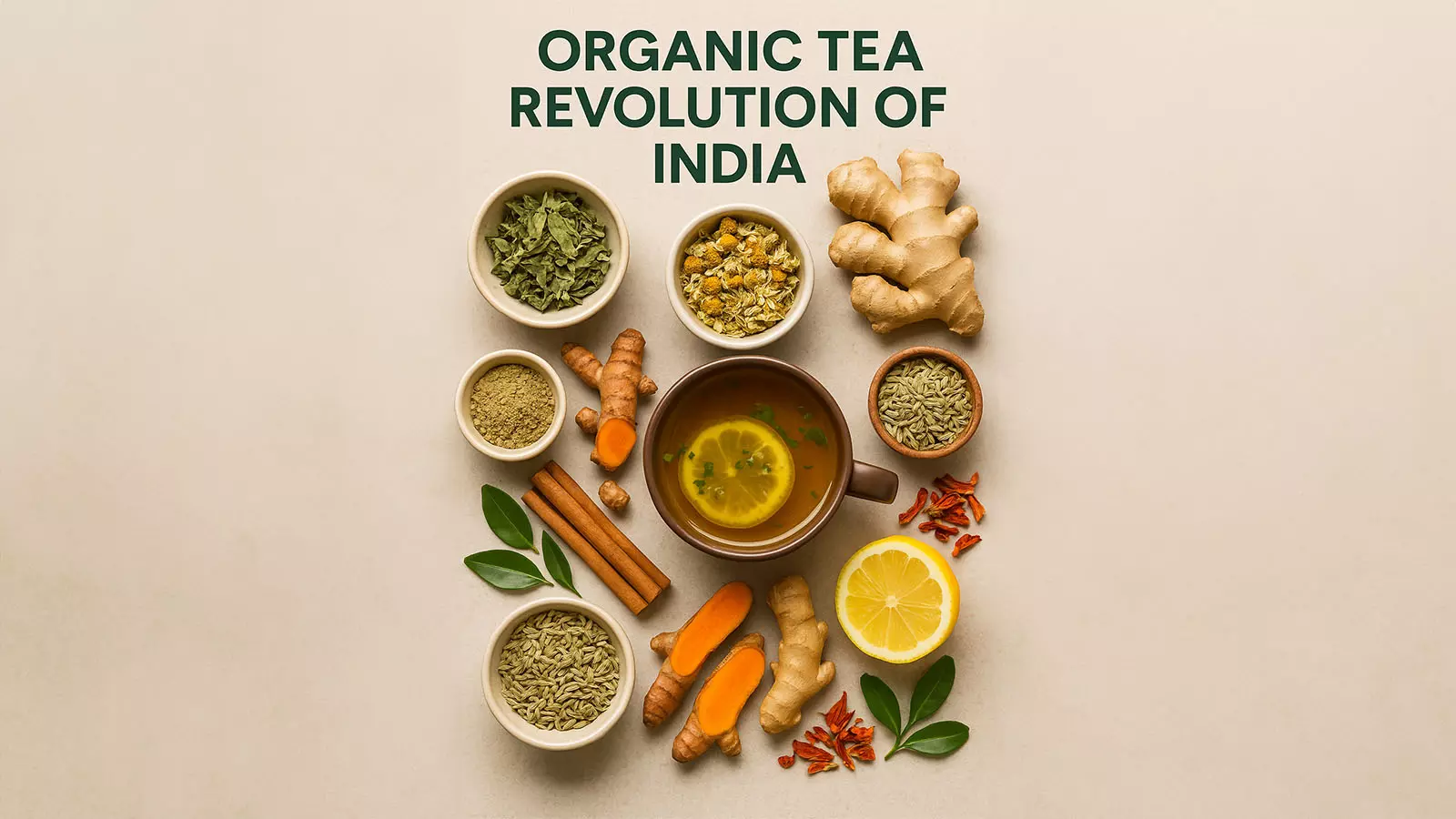
- Home
- India
- World
- Premium
- THE FEDERAL SPECIAL
- Analysis
- States
- Perspective
- Videos
- Sports
- Education
- Entertainment
- Elections
- Features
- Health
- Business
- Series
- In memoriam: Sheikh Mujibur Rahman
- Bishnoi's Men
- NEET TANGLE
- Economy Series
- Earth Day
- Kashmir’s Frozen Turbulence
- India@75
- The legend of Ramjanmabhoomi
- Liberalisation@30
- How to tame a dragon
- Celebrating biodiversity
- Farm Matters
- 50 days of solitude
- Bringing Migrants Home
- Budget 2020
- Jharkhand Votes
- The Federal Investigates
- The Federal Impact
- Vanishing Sand
- Gandhi @ 150
- Andhra Today
- Field report
- Operation Gulmarg
- Pandemic @1 Mn in India
- The Federal Year-End
- The Zero Year
- Science
- Brand studio
- Newsletter
- Elections 2024
- Events
How handcrafted brews are reshaping India's relationship with its favourite beverage

In the heart of a country where chai has long been a way of life, a new wave is sweeping across India's tea culture—one that is handcrafted, organic, and deeply wellness-driven. While the comforting aroma of masala chai simmering on the stovetop remains a familiar presence in millions of Indian households, a parallel narrative is unfolding in the country's tea landscape—one that...
In the heart of a country where chai has long been a way of life, a new wave is sweeping across India's tea culture—one that is handcrafted, organic, and deeply wellness-driven. While the comforting aroma of masala chai simmering on the stovetop remains a familiar presence in millions of Indian households, a parallel narrative is unfolding in the country's tea landscape—one that prioritises artisanal quality, sustainability, and holistic wellness. India, the world's second-largest tea producer, has traditionally been known for its mass-produced CTC (Crush, Tear, Curl) teas that form the backbone of the strong, milky chai beloved across the subcontinent. However, the last decade has witnessed an unprecedented shift toward premium, specialty teas that emphasize craftsmanship and health benefits.
In the wake of the COVID-19 pandemic, a quiet revolution is brewing in the teacups of India's younger generation. Once loyal to dudh wali chai or bitter green teas, today's youth are increasingly turning to caffeine-free herbal infusions and Ayurvedic blends.

“Tea is no longer just a beverage—it's becoming the first important meal of the day,” says Sunil Chandra Saha, Co-founder of Blue Tea. “Young consumers are now asking, 'Can my tea solve health issues?” This shift is driven by rising awareness around lactose intolerance, increased focus on fitness, and an appetite for body-positive living. “There's a marked move toward teas that deliver real health benefits, especially in online buying behaviour,” adds Saha. “Modern youth are not just sipping tea—they're choosing it as part of a broader lifestyle transformation.”
“What we're seeing isn't just a trend but a fundamental reimagining of tea's role in Indian society,” says Snigdha Manchanda, India's First Certified Tea Sommelier and founder of Tea Trunk. “Consumers are increasingly viewing their daily cup not just as a habit but as a wellness ritual—tea is no longer just a comfort beverage; it has become a lifestyle choice, its a moment of mindfulness in their hectic lives.”
The rise of artisanal production
In the misty hills of Darjeeling, fourth-generation tea estate owner Sparsh Agarwal has transitioned his family's 1000-acre Selim Hill Tea Garden from conventional to organic farming. Of this, around 450 acres are cultivated with tea bushes, while the remaining 550 acres consist of forest cover, contributing to the estate's ecological richness. His great-grandfather acquired their first tea garden in the late 1960s, long before major capital investments started pouring into Darjeeling in the 1980s. Over the decades, the estate, like many others in the region, faced a slew of challenges—declining yields, shorter harvest periods due to erratic weather, a shrinking export market, and ongoing socio-political turmoil (notably since 2017).
The situation worsened during the COVID-19 lockdown in 2020, which hit during the critical first and second flush seasons, pushing the estate to the brink of collapse. At that point, Sparsh and his family considered selling it. However, encouraged by close friends and his deep personal connection to the land and community, Sparsh chose to stay and revive the estate. Dorje started as a way to revive his family’s estate, but it quickly evolved into a model for sustainable, community-driven tea production. His story is increasingly common across India's tea-growing regions. According to the Tea Board of India, organic tea cultivation has grown at approximately 25% annually since 2018, with over 15,000 hectares now under certified organic production.

Challenging industry giants, Blue Tea has secured a spot among the top three in India's tea category. “This marks a real transformation in how India is drinking tea,” says Saha. “We set out to revive the heritage of Indian teas that existed long before British colonization—herbal, Ayurvedic, and naturally caffeine-free—and present them in a modern, convenient format through biodegradable tea bags, tailored for today's health-conscious youth.” Saha contrasts this with the era of bitter green teas: “Green tea was never truly suited to the Indian palate. Often sold six to nine months after harvest, it lacked freshness and cultural connection. It dominated for 35 years, but the tide is turning.”
Blue Tea sources from over 600 small farmers nationwide. “We're not just another tea company,” Saha emphasises. “We're redefining what India's own hot beverage should be. Without celebrity endorsements or legacy backing, Blue Tea has become India's No. 1 herbal tea brand and now ranks as the fourth most consumed hot drink in the country. We've reached 13 countries worldwide—driven not by godfathers, but by purpose.”
Dr. Rajeswari Raina, agricultural economist at Shiv Nadar University, notes, “Small-scale farmers are finding that organic and artisanal production offers a viable escape from the price volatility that has historically plagued commodity tea markets. By focusing on quality over quantity, these producers are creating sustainable livelihoods while preserving traditional knowledge.” The craft approach extends beyond farming to processing techniques. At Tea Studio in the Nilgiris, Muskan Khanna explains, “Each batch requires careful attention to weather conditions, oxidation timing, and rolling pressure. No two batches are identical—that's the beauty of artisanal production. We're creating something with character, something that tells the story of our specific terroir and season.”
Ancient meets modern
India's tea revolution bridges ancient Ayurvedic wisdom with contemporary wellness science. Millennia-old formulations featuring herbs like tulsi, ashwagandha, and moringa are being reimagined as sophisticated blends for modern health concerns. “Our customers are increasingly sophisticated in their understanding of functional ingredients. They're not just looking for something that tastes good—they want teas formulated for specific concerns like stress reduction, immunity, or digestive health," says Manchanda. "People are reaching for blends that support specific wellness goals like better sleep, improved digestion, immunity, and stress relief. There's growing interest in adaptogenic herbs, functional botanicals, and caffeine-free options that can be consumed throughout the day.”

According to the Tea Board of India, the flavoured tea market is rapidly growing, especially among youth. The market is estimated at 60 million kilograms in volume and valued at approximately Rs 3,600 crore, accounting for about 10% of packet tea consumption in India. The broader Indian tea market is projected to grow at a CAGR of 4.2% from 2024 to 2032. “Five years ago, customers would walk in asking for 'green tea' generically because they heard it was healthy,” recounts Susmita DasGupta, founder of The Tea Brewery. “Today, they're asking specific questions about flush timing, cultivar varieties, and terroir. The level of connoisseurship has increased dramatically.” Premium tea retail concepts are growing at 45% year-over-year in tier-1 cities, attracting younger consumers who are rediscovering tea through a contemporary lens.
“What's exciting for me is that consumers are becoming more informed—they want clean labels, sustainably sourced ingredients, and science-backed benefits. At Tea Trunk, we've seen a rise in demand for teas with functional ingredients like tulsi, chamomile, and matcha. The future of tea is deeply personal and intentional—it's about how you want to feel, not just what you want to drink,” says Manchanda.
The digital tea movement
Technology has disrupted traditional supply chains. “When we started in 2012, it typically took 6-8 months for teas to travel from gardens to consumers,” says Kaushal Dugar, founder of Teabox. “By leveraging technology for inventory management and logistics, we've reduced that to 3-5 days. This means consumers are experiencing teas that are dramatically fresher, with flavour profiles that were previously impossible to access outside the gardens themselves.” Social media has accelerated the movement, with Instagram-worthy presentations and influencer partnerships introducing tea culture to younger demographics.
Environmental consciousness underpins much of this movement. “Organic isn't just a premium price point for us—it's survival,” states Leela Devi, a tea farmer from Assam. “Chemical-intensive farming depleted our soils and made our plants vulnerable to changing weather patterns. Converting to organic methods has improved soil health and biodiversity, making our gardens more resilient.” Sustainability extends to packaging innovations. “Consumers expect end-to-end sustainability,” notes environmental consultant Rohini Sankaran. “They're increasingly unwilling to accept the contradiction of healthy, organic tea being packaged in materials that harm the environment.”
Challenges and future outlook
Despite impressive growth, India's artisanal tea movement faces significant challenges: certification costs, climate change, counterfeiting, and scaling issues. “The biggest challenge is scaling authentic artisanal production without compromising its fundamental qualities,” observes Rajeev Baid, Chairman of the Specialty Tea Association of India. In his recent blog he writes, “Indian tea deserves its space on the global stage—not just for what it is, but for how it's told, sold, and remembered.” Rajah Banerjee, a pioneer in India's organic tea movement, sees this transformation as just the beginning: “What's happening today represents the most significant evolution in Indian tea culture since the British established plantations in the 19th century. We're witnessing the democratization of connoisseurship and the elevation of tea beyond commodity status to its rightful place as one of the world's most complex and nuanced agricultural products.”
For a nation where chai runs through the cultural bloodstream, this movement represents a reconnection with tea's ancient roots. “In many ways, we're coming full circle,” reflects Manjul Tiwari, a Tea aficionado. “Long before tea became industrialized, it was medicine, meditation, and ritual. The current revolution isn't introducing something new—it's remembering something ancient that we temporarily forgot.” As India's artisanal tea movement flourishes, it offers valuable lessons about reimagining traditional products for contemporary values without losing cultural essence. “In the delicate balance between innovation and tradition, India's tea revolutionaries are brewing something truly remarkable—cup by mindful cup,” concludes Manchanda.
